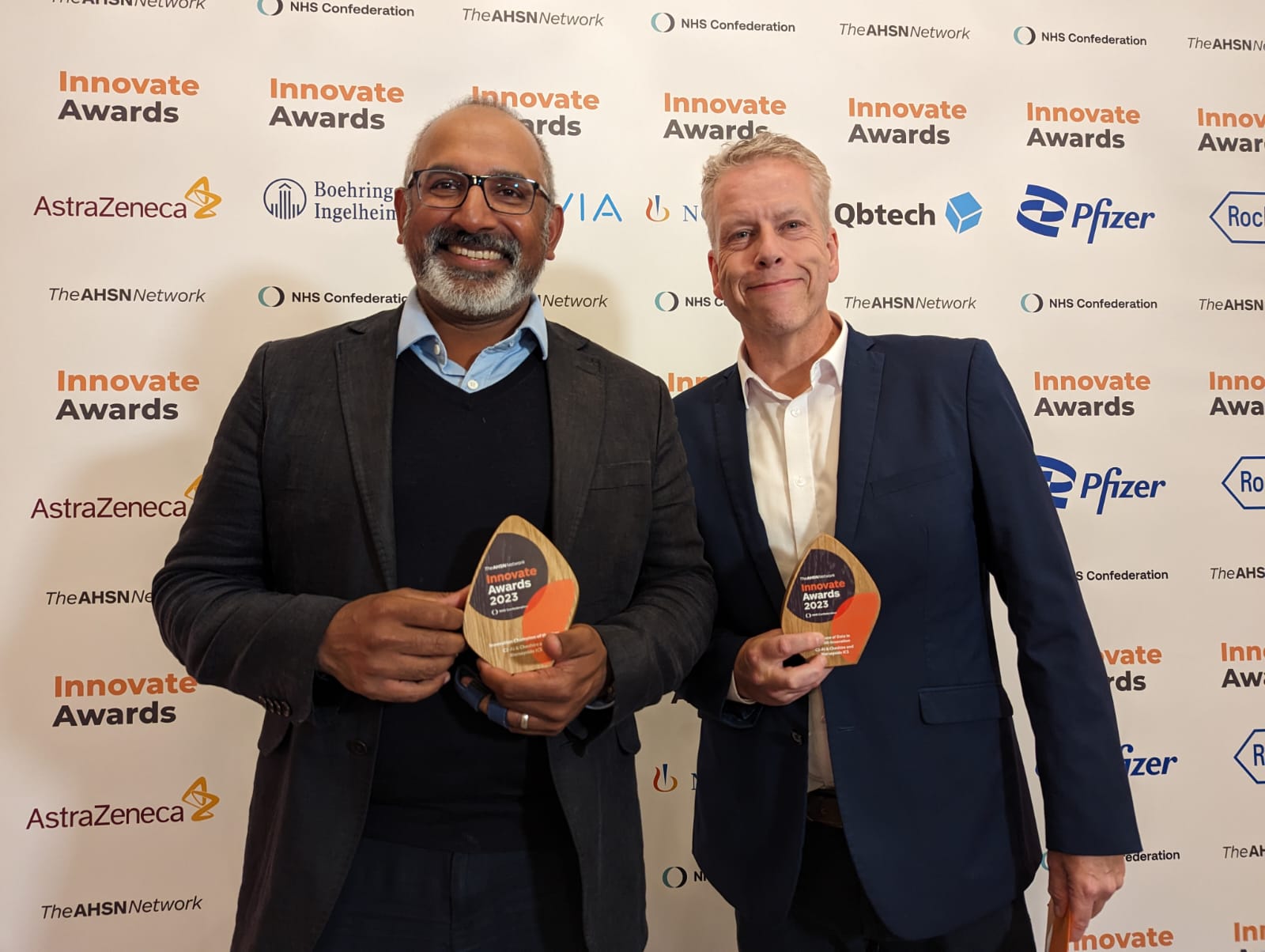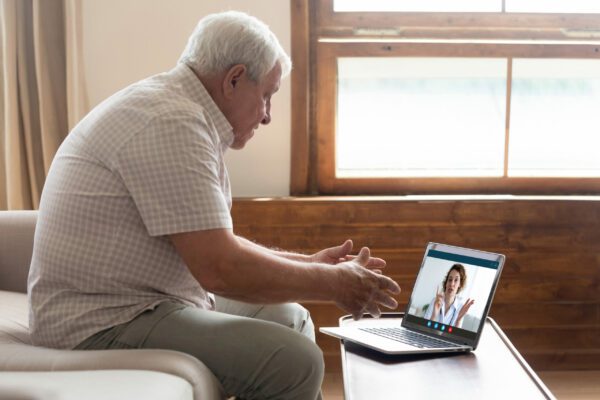Transforming lives through healthcare innovation
There are 15 health innovation networks across England, established by NHS England in 2013 to spread innovation at pace and scale – improving health and generating economic growth.
Find out how we can help you
Innovate Awards 2023 – winners announced
The winners of the Innovate Awards 2023 were revealed yesterday (Thursday 21 September 2023) at an awards ceremony held at the De Vere Grand Connaught Rooms in London.
The ceremony was attended by NHS leaders, innovators, and partners.
Technology thought-leader and Countdown arithmetician, Dr Anne-Marie Imafidon MBE, hosted the ceremony. The keynote speech was delivered by Dr Vin Diwakar, the incoming National Director of Transformation in NHS England.
The Innovate Awards, delivered in partnership between the Health Innovation Network and NHS Confederation, celebrate innovation in health and care.





